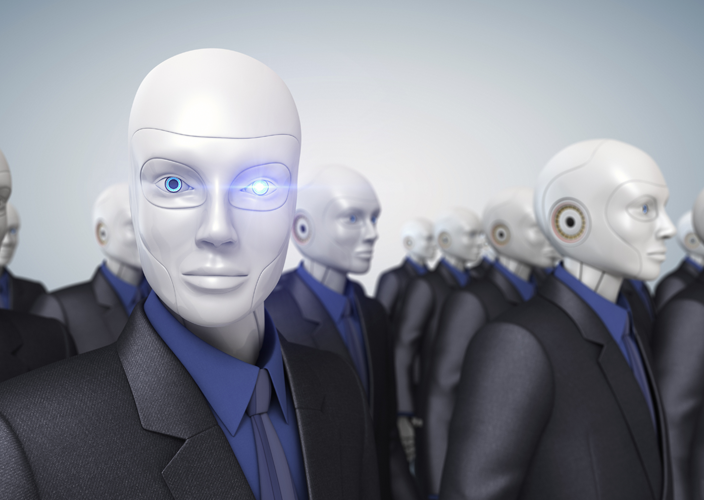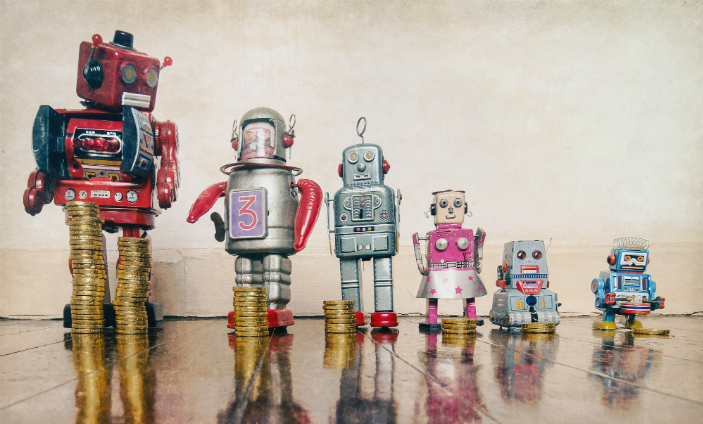Skynet In The Real-World | Real Life Skynet

Is Arnie our friend?
Whenever I speak to someone outside the tech industry about AI, they often tend to fear the idea. This is mainly due to blockbuster movies, typically portraying a self-conscious robot disobeying its creators and transcending its coded boundaries of morality and discipline.
“Listen, and understand that Terminator is out there. It can’t be bargained with, it can’t be reasoned with, it doesn’t feel pity or remorse or fear. And it absolutely will not stop…” – Kyle Reese
The Terminator, i-Robot, Ex Machina to name a few. Beings created by humanity, to serve humanity but ultimately aiming to destroy it.
Why is it that the created wants to destroy its creator? Can we assume that having a higher level of intellect or being higher in the evolutionary tree would cause this? Probably not. Perhaps this view stems from the fear that artificial intelligence would exhibit its creators own violent nature. Either way, AI is cropping up everywhere in the real world and will continue to weave its way into our everyday lives.

The weak versus the strong
First, let’s clarify the difference between AI in the real-world and AI in the films. Cinematic AI is known as ‘Strong AI’. It’s self-aware and exhibits the same (or advanced) capabilities of the human mind. We’re not even remotely close to being able to create such a mind. Without being able to fathom our own consciousness yet, how can we contemplate the creation of another?
‘Weak AI’ is in your everyday life.
For example, maybe you’re asking Siri, Alexa or Cortana (no bias) to research something for you. You could be searching for your favourite video online, using the vaguest description on Google. Or you might be calling your bank to pay off your credit card over the phone, using an automated system.
It can process and complete a variety of tasks based on a set number of rules, inputs and outputs. Using copious amounts of data, it has a defined and finite intelligence, providing convenience to end users.

Great! But what does the future hold?
From automated chat bots driving marketing reach and autonomous network monitoring increasing levels of digital security, through to automatic cross-referencing and data analysis reducing workloads in any industry, AI is making headway in improving business lives.
AI has been around for a while but it’s starting to come in to its own – currently par/sub-human capabilities are being implemented to improve business or lifestyle. But what’s interesting is the ‘high/super-human’ capabilities we’re seeing creep in.
In March 2016 AlphaGo (Google’s Deepmind) beat the top human ‘Go’ player in the world, Lee Sedol, 4-1 in a game of ‘Go’ under Chinese rules.
Although an amazing technological accomplishment, this isn’t much use in the real world, unless you’re in the industry of ‘Go’. But if similar methodology is applied to another strategy based activity, (war for example), we could see significant impact.
War, in its rudimentary form, is a game of at least two sides, each opponent using strategy, wits and cunning (alongside some form of rules), to battle it out until one is reigned the winner. Although a slightly disturbing thought, progression in drone capabilities, autonomous vehicles and hydraulically activated robots means the idea of robots fighting and implementing strategy in war, is no longer a theory dreamt up by Hollywood directors.

On a less morbid note, we’re already seeing AI being used to develop medical treatments, processing and analysing data faster than a human’s mind. As development continues, AI will be able to diagnose and discover disease, conduct research and produce suggested treatments. All it will need is data.
Improved healthcare, improved security, improved efficiency and best of all, no human error. Yes, machines may malfunction from time to time, but artificial intelligence based purely on perfect code and perfect algorithms, can’t fault if produced without human error.
I admit Cortana, Siri or Alexa may not understand what you’re asking but this is due to end user mis-communication or the Weak AI not having been fully developed by its human creator. Through machine learning and further development, Weak AI will slowly but surely have more super-human capabilities. How we choose to apply those is ironically limited by our own intelligence.
Use your head
I guess the point of this article is to urge you to embrace and think about AI. The next time you’re sat on a train with a moment to spare, why not jot down how AI can replace or improve something you do at work or home? Or let your mind drift to something AI could do that humans can’t.
There are several services you can try out – Caffe, Microsoft Cognitive Toolkit DMTK, Deeplearning4J, the list goes on. If you think of an idea and fancy something new, develop it!
We know that the development of today’s artificial intelligence and its industry is lessened by our own limitations. Until we discover how to make Strong AI, we’re on our own. So, we may as well go alone, together. Let’s share our ideas and help make the world more convenient.
For all of humanity.


